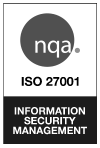AutomationEdge – RPA Consulting and Implementation Services
AutomationEdge – RPA Consulting and Implementation Services
IT – Cross Industry
IT is an area within all industries where RPA can provide substantial benefits and cost savings. Within the service desk, AutomationEdge will help you fulfil common service requests from business users like password reset, shared folder access, distribution list management, software installation, O365 user creation, user creation in business applications, employee onboarding and offboarding etc – automatically without involving IT.
For IT and network, RPA helps in the automation of common NOC tasks with automated and semi-automated resolution of alerts, events and tickets including Server Restart, Service Restart, Health Check of Systems and Applications, which can resolve database, network and compliance performance issues.
Banking and Finance
Banking and financial institutions have been one of the first to adapt to new technology. The digital systems are already making a difference in front-end and back-end services. With AI and Machine Learning, RPA solutions can put thinking into work, making them more helpful. Banking institutions have a huge scope for automation due to the large number of manual and repetitive processes.
With RPA, banking institutions can streamline processes and relieve resources from repetitive tasks. RPA can be a differentiating factor to banking and financial institutions by freeing up talent. It provides operational efficiency and reduces costs with increased compliance.
Insurance
Insurance companies can be swamped with back-office forms as many of the processes are paper based. Insurers regularly handle an exceptionally high volume of business transactions like claims-processing and underwriting as well as providing policy quotes, many of which are done manually. This can create delays which can detrimentally impact customer satisfaction, business conversion and profitability.
RPA with AI capability can analyse large volumes of data and deal with exceptions, translating them into individual automated actions. RPA can go beyond just cost reduction and efficiency by adding significant value to businesses with built-in personalisation and a high degree of self-service.
Retail
Retail is one of the most competitive markets in the world while working within very thin margins. Many retail companies have to maintain a large inventory in distributed warehouses and as online sales ramp up, retail companies have to maintain an offline as well as and online operation simultaneously. Before automation, retail businesses had to carry out various manual processes from inventory management to sales analysis. The workload of these manual tasks could be difficult to manage and could slow down operations.
With Robotic Process Automation, these processes can be automated for more efficient and accurate operations, thus increasing productivity and generating faster business operations. Many of the important processes, like order processing & updating, inventory management, marketing and consumer behaviour analytics, accounting and finance, demand and supply planning, logistics and supply chain management etc, can be automated with RPA.
Telecommunication
Telecommunication is a fast-growing industry which helps us all stay connected. But with fast growth comes challenges. Rapid growth increases the burden on operational processes like managing data, increasing cost, quality of support and many more. These challenges can prevent telecom companies from providing better customer service.
With the inclusion of Robotic Process Automation, the telecom industry can increase the operational efficiency and speed of operations, thus reducing these pressures. Automating processes will streamline the process and increase customer response time with accuracy. The commonly automated processes in the telecom industry are service fulfilment, service assurance, billing, revenue management and network management etc. After implementing RPA, the telecom industry can leverage improved service delivery, reduced cost, decreased human intervention and high level of scalability.
BPO
RPA works particularly well in the services industry, specifically Business Process Outsourcing (BPO). BPO is always looking for a high degree of productivity at reduced cost because of the competitive nature of the industry.
The BPO industry can really benefit by adopting Robotic Process Automation (RPA) technologies in area such as customer experience, data processing, and support services. RPA can help the BPO industry significantly reduce response and resolution time with reduced cost and higher productivity. With the improved level of accuracy and efficiency, customer experience will also be improved.
Shipping and Logistics
The transportation and logistics industry is going through a rapid digital transformation. Shipping and logistics companies are under pressure from their customers and shipping firms demanding higher prices for their services. In a typical shipping and logistics operation, back-office operations like updating customer details on portals with the current status and ETA, scheduling a delivery, or tracking are performed manually.
Robotic Process Automation can automate many of the tasks that are performed manually and can work 24/7, increasing operational efficiency and productivity while reducing cost.
Manufacturing
The manufacturing industry is focused on optimising its operational processes like assembling, testing and packaging products using physical robots. But the industry still struggles to keep its back-office processes, such as invoice processing, procurement, vendor communication and report generation, working at pace. In order to remain competitive, the manufacturing industry has to focus on optimising these processes using robotic process automation to reduce costs while improving efficiency.
When there is a significant volume of work that has to be processed frequently, RPA is an effective solution to optimise these back-office repetitive tasks like quoting, invoicing, accounts payable, accounts receivable, general ledger operations, sales, pipeline and pricing report creation, etc.
Education
Education has always been document oriented and, to a large extent, is still. Staff in educational institutes always have to be on top of the mundane and repetitive tasks like verifying information from documents, registering students in systems, etc. With Robotic Process Automation, institutes can automate IT as well as administrative activities which will save time and cost, leaving more time for analysis and service improvement.
Activities such as candidate shortlisting, course registration, student on-boarding, attendance tracking and student grading /assessment, HR/admin/finance can all be automated using RPA.
Healthcare
The healthcare industry is swiftly moving towards automated interactions and data management, powered by RPA. The tasks associated with back-office administration are all candidates for RPAS which in turn will help enhance overall patient satisfaction, improve patient experience, and drive competitive advantage.

IT – Cross Industry
IT is an area within all industries where RPA can provide substantial benefits and cost savings. Within the service desk, AutomationEdge will help you fulfil common service requests from business users like password reset, shared folder access, distribution list management, software installation, O365 user creation, user creation in business applications, employee onboarding and offboarding etc – automatically without involving IT.
For IT and network, RPA helps in the automation of common NOC tasks with automated and semi-automated resolution of alerts, events and tickets including Server Restart, Service Restart, Health Check of Systems and Applications, which can resolve database, network and compliance performance issues.

Banking and Finance
Banking and financial institutions have been one of the first to adapt to new technology. The digital systems are already making a difference in front-end and back-end services. With AI and Machine Learning, RPA solutions can put thinking into work, making them more helpful. Banking institutions have a huge scope for automation due to the large number of manual and repetitive processes.
With RPA, banking institutions can streamline processes and relieve resources from repetitive tasks. RPA can be a differentiating factor to banking and financial institutions by freeing up talent. It provides operational efficiency and reduces costs with increased compliance.

Insurance
Insurance companies can be swamped with back-office forms as many of the processes are paper based. Insurers regularly handle an exceptionally high volume of business transactions like claims-processing and underwriting as well as providing policy quotes, many of which are done manually. This can create delays which can detrimentally impact customer satisfaction, business conversion and profitability.
RPA with AI capability can analyse large volumes of data and deal with exceptions, translating them into individual automated actions. RPA can go beyond just cost reduction and efficiency by adding significant value to businesses with built-in personalisation and a high degree of self-service.

Retail
Retail is one of the most competitive markets in the world while working within very thin margins. Many retail companies have to maintain a large inventory in distributed warehouses and as online sales ramp up, retail companies have to maintain an offline as well as and online operation simultaneously. Before automation, retail businesses had to carry out various manual processes from inventory management to sales analysis. The workload of these manual tasks could be difficult to manage and could slow down operations.
With Robotic Process Automation, these processes can be automated for more efficient and accurate operations, thus increasing productivity and generating faster business operations. Many of the important processes, like order processing & updating, inventory management, marketing and consumer behaviour analytics, accounting and finance, demand and supply planning, logistics and supply chain management etc, can be automated with RPA.

Telecommunication
Telecommunication is a fast-growing industry which helps us all stay connected. But with fast growth comes challenges. Rapid growth increases the burden on operational processes like managing data, increasing cost, quality of support and many more. These challenges can prevent telecom companies from providing better customer service.
With the inclusion of Robotic Process Automation, the telecom industry can increase the operational efficiency and speed of operations, thus reducing these pressures. Automating processes will streamline the process and increase customer response time with accuracy. The commonly automated processes in the telecom industry are service fulfilment, service assurance, billing, revenue management and network management etc. After implementing RPA, the telecom industry can leverage improved service delivery, reduced cost, decreased human intervention and high level of scalability.

BPO
RPA works particularly well in the services industry, specifically Business Process Outsourcing (BPO). BPO is always looking for a high degree of productivity at reduced cost because of the competitive nature of the industry.
The BPO industry can really benefit by adopting Robotic Process Automation (RPA) technologies in area such as customer experience, data processing, and support services. RPA can help the BPO industry significantly reduce response and resolution time with reduced cost and higher productivity. With the improved level of accuracy and efficiency, customer experience will also be improved.

Shipping and Logistics
The transportation and logistics industry is going through a rapid digital transformation. Shipping and logistics companies are under pressure from their customers and shipping firms demanding higher prices for their services. In a typical shipping and logistics operation, back-office operations like updating customer details on portals with the current status and ETA, scheduling a delivery, or tracking are performed manually.
Robotic Process Automation can automate many of the tasks that are performed manually and can work 24/7, increasing operational efficiency and productivity while reducing cost.

Manufacturing
The manufacturing industry is focused on optimising its operational processes like assembling, testing and packaging products using physical robots. But the industry still struggles to keep its back-office processes, such as invoice processing, procurement, vendor communication and report generation, working at pace. In order to remain competitive, the manufacturing industry has to focus on optimising these processes using robotic process automation to reduce costs while improving efficiency.
When there is a significant volume of work that has to be processed frequently, RPA is an effective solution to optimise these back-office repetitive tasks like quoting, invoicing, accounts payable, accounts receivable, general ledger operations, sales, pipeline and pricing report creation, etc.

Education
Education has always been document oriented and, to a large extent, is still. Staff in educational institutes always have to be on top of the mundane and repetitive tasks like verifying information from documents, registering students in systems, etc. With Robotic Process Automation, institutes can automate IT as well as administrative activities which will save time and cost, leaving more time for analysis and service improvement.
Activities such as candidate shortlisting, course registration, student on-boarding, attendance tracking and student grading /assessment, HR/admin/finance can all be automated using RPA.


